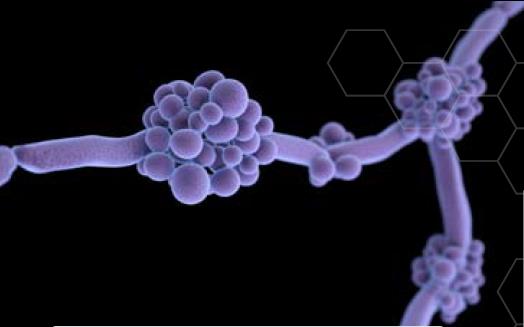
Antimicrobial Resistance Training Program in the Texas Medical Center (AMR-TPT) -
Grant Award Dates 7/1/2024-6/30/2029

Funded by the National Institute of Allergy and Infectious Diseases (NIAID), T32 AI179595
We are pleased to announce our new training program, Antimicrobial Resistance Training Program in the Texas Medical Center (AMR-TPT).
- PD: Cesar Arias, MD, PhD, Houston Methodist Research Institute
- Co-PDs: Kevin Garey, PharmD, University of Houston; Danielle Garsin, PhD, UTHealth
- Number of Postdoc Slots: 4 (PhD, MD, PharmD)
- Start Date: July 1, 2024
Program Director:
Cesar A. Arias, MD, MSc, PhD
Professor of Medicine
Co-Director, Center for Infectious Diseases
Houston Methodist Research Institute
Program Co-Directors:
Kevin Garey, PharmD
Professor and Chair of Pharmacy Practice & Translational Research
University of Houston College of Pharmacy
Danielle A. Garsin, PhD
Professor of Microbiology and Molecular Genetic
The University of Texas Health Science Center at Houston
Program Administrators:
Karen Ethun, Executive Director, Gulf Coast Consortia/Keck Center
Vicki Alger, Training Administrator and Program Evaluator, Gulf Coast Consortia
Antimicrobial resistance (AMR) has become one of the top public health priorities worldwide. Our new, innovative, inter-disciplinary and multi-institutional AMR program will train the next generation of physicians, physician-scientists, PharmDs and PhD researchers on the complex, multifaceted and challenging problems that AMR presents.
Trainees will be immersed in the rich and fertile environment of the Houston Texas Medical Center and will interact at the interface of clinical practice, basic science, drug discovery, public health and hospital epidemiology. Our world-class AMR researchers, existing resources, institutional support, administrative organization and a collaborative, cross-disciplinary environment already in place offer the perfect platform for a high-quality training program encompassing 8 major biomedical research institutions:
- Houston Methodist Research Institute (HMRI)
- University of Texas Health Science Center (UTH)
- MD Anderson Cancer Center (MDA)
- Baylor College of Medicine (BCM)
- University of Texas Medical Branch at Galveston (UTMB)
- University of Houston College of Pharmacy (UH)
- Rice University (RU)
- Institute of Biosciences and Technology (IBT).
Our goal is to provide the training, skills, and tools needed to translate research findings into actionable items in the clinic and to translate patient-based observations back into the laboratory to counteract AMR in patients across the medical spectrum.
The Gulf Coast Consortia is committed to providing equal opportunity in training for individuals with disabilities and individuals from racial and ethnic groups who are currently under-represented in STEM fields. We welcome applications from all qualified trainees, regardless of ethnic/racial status or disability status. All GCC member institutions are ADAAA compliant and have offices of disability support services that provide accommodations and support services to trainees, faculty, staff, and visitors.
This Antimicrobial Resistance Training Program in the Texas Medical Center (AMR-TPT) addresses the critical need to train young postdoctoral researchers in multidisciplinary fields to acquire the appropriate tools and expertise to approach antimicrobial resistance (AMR) in a transformative and logical manner. AMR-TPT will provide clinical fellows, postdocs, and PharmDs with innovative training opportunities, including 1) rigorous grounding in AMR fundamentals, 2) intensive, co-mentored, multidisciplinary research experiences, 3) broad exposure to established and emerging areas of AMR, 4) strong career development training, and 5) opportunities for international research programs in AMR.
Length of Initial Training Appointment: One year (12 months). Training program start date – July 1. Trainees will have the opportunity for reappointment (total of two years) dependent upon continued funding of the AMR-TPT program and upon a successful progress review.
For information about the previous Antimicrobial Training Program, please click here. Please note this training program ended June 30, 2024.
Trainee Eligibility and Level
- Must be US or Dual Citizen, or Permanent Residents at the time of appointment
- Must be employed at one of the eight participating institutions and working in the primary mentor’s lab by the appointment date
- MDs, MD/PhDs, PharmDs will apply at the end of their first year in their program
- PhDs will apply at the end of their first or second year as a postdoc in a AMR-TPT faculty research lab
Mentors and Co-Mentor Eligibility
Applicants will select ONE primary mentor and TWO secondary / co-mentors with complementary expertise, and from different participating departments and institutions.
Only faculty approved to participate in AMR-TPT may sponsor an applicant. See AMR-TPT Training Faculty list here (see AMR-TPT Training Faculty).
Faculty interested in joining AMR-TPT and sponsoring an applicant must provide: 1) a Biosketch with current funding and 2) a brief record of mentoring experience for postdoctoral fellows. This information will be reviewed by the AMR-TPT steering committee, and a decision for approval to join AMR-TPT will be made on a timely basis. Please send an email stating interest and providing this information to Vicki Alger.
Junior or early-stage faculty who participate in AMR-TPT but do not have federal funding may serve as primary mentor for an applicant provided the following: 1) the co-mentor (s) are currently senior faculty members of AMR-TPT; 2) at the time of the application, there are funds to support the trainee after the trainee is no longer supported by AMR-TPT, if necessary. Funding may be from institutional sources, such as start-up or departmental funding, or from the senior mentors. This funding information is required with the trainee’s application.
A primary mentor may sponsor only one applicant per application round and have a maximum total of 2 trainees appointed to AMR-TPT during the 5-year grant period.
Trainee Requirements during Training Period
- Take AMR Foundations Course, offered annually each Fall (ANTIMICROBIAL RESISTANCE Foundations Course Fall 2024)
- Conduct AMR research project (with mentor and 2 co-mentors with complementary expertise)
- Take (audit) a biostatistics course or provide evidence of completion of a recent comparable course
- Participate in mentorship of a predoctoral student in the UTHealth Molecular Basis of Infectious Diseases training program
- Attend and present poster and research talk at TMC Annual AMR and Stewardship Conference (January 2025)
- Attend and present poster at Keck Annual Research Conference (October 2024)
- Attend weekly Keck Seminars, and AMR monthly seminars, journal club
- Attend and present AMR research project progress at the annual progress review with the AMR-TPT Steering Committee
- Attend and submit abstracts to regional and national meetings such as IDWeek and ASMMicrobe
- Develop and review Individual Development Plan
- Take workshops in Responsible Conduct of Research and Rigor and Reproducibility
- Take career development seminars (minimum of 2 each year)
- Take a grant writing workshop to prepare a proposal; may write a career development proposal (NIH K award)
- Engage in post-training with the next cohorts of AMR-TPT trainees
Benefits of Fellowship
By participating in this program, trainees will have a co-mentored project by mentors in complementary research areas to leverage their training and research in these diverse areas. Additionally, each appointment provides up to 24 months of NIH Postdoctoral stipend support (current levels will be used, per NIH FY2024), plus partial support for health insurance (not fringe) and travel. The trainee’s primary mentor/department is responsible for the fringe, and the remainder of the stipend and health insurance (up to the institutional level). All NIH-Funded postdoctoral fellows are subject to the terms and conditions of the NRSA Payback Agreement.
Trainees will have the opportunity for reappointment (total of two years) if progress is satisfactory.
Note: A primary mentor may sponsor only one applicant per application round and have a maximum total of 2 trainees appointed to AMR-TPT during the 5-year grant period.
The Gulf Coast Consortia is committed to providing equal opportunity in training for individuals with disabilities and individuals from racial and ethnic groups who are currently under-represented in STEM fields. We welcome applications from all qualified trainees, regardless of ethnicity, race, or disability status. All GCC member institutions are ADAAA compliant and have offices of disability support services that provide accommodations and support services to trainees, faculty, staff, and visitors.
Selecting your mentors:
- Identify mentors who are (or will become) members of the AMR-TPT Training Faculty. Only faculty approved to participate in AMR-TPT may sponsor an applicant (see Overview Section above).
- Junior or early-stage faculty may also serve as primary mentors, provided they meet the eligibility requirements (see Overview section above). *NOTE: It is highly encouraged that mentors come from different departments and different institutions.
Components of the Application – Email all the following items in one email to Vicki Alger.
- Fellowship Application form (AMR TPT Application 2025). Components besides educational background and published papers include:
- Project description
- Mentoring and Training Plan
- Career Goals
- Curriculum – Complete the curriculum section with your proposed courses or workshops. Note: AMR-TPT requires a Foundations course, offered at UTHealth each fall.
- Brief Individual Development Plan (IDP)
- CV or resume: a current resume or CV outlining your professional work experience and academic history, including the dates you received your degree(s).
- Transcripts are required from postdoctoral applicants: official copies are preferred, but unofficial copies will be accepted. Email the following as PDFs (not photos)
- Undergraduate transcripts from all institutions you attended
- Master’s degree transcript (if applicable)
- Doctoral degree transcript, which includes a listing of courses attended (not just a diploma); documentation must also include the official receipt date of your doctoral degree (e.g. “conferred May 9, 2020”). If the transcript is in a foreign language, you must submit an English translation for all degrees; you may use a copy of the transcripts that you provided to your institution.
- Proof of US or Dual citizenship (birth certificate or passport; a driver’s license is not proof of citizenship) or Permanent Residency (“Green Card”): email a clear PDF scan (not a photo). You must already have received your Green Card to be appointed to the training grant. If a Permanent Resident is appointed to a fellowship, s/he must provide a notarized copy of the card to the GCC to submit to the agency. Inquire in your department about finding a Notary Public to do this.
Items needed from others:
- Mentor Recommendation Letters. Primary mentor and two co-mentors must follow the below format when preparing their respective support letters. All mentors are to email their letters directly to Vicki Alger.
- Two (2) additional Letters of Recommendation from people other than your mentors. The recommenders should email them directly to Vicki Alger.
- These letters must be received by the application due date. These recommendations are not required to be on letterhead or signed, as long as the name, title, department and institutional affiliation are included in the text. These recommenders may be former professors, employers, etc., and describe qualities that they observed in the applicant which qualify him/her to be a AMR-TPT trainee.
Mentor Recommendation Letter Instructions
Primary Mentors:
Describe your role in the applicant‘s proposed research project. Evaluate the applicant’s overall ability and likelihood of becoming a productive first quality researcher in this field. Include a brief statement about the mentor’s relationship with the applicant, how long you have known each other, and on what month/date s/he started as a postdoctoral research fellow in your group. Discuss the applicant’s written and oral presentation skills and his/her ability to work effectively within an interdisciplinary group.
Rate the applicant in the following categories.
(Suggested ranking options: Top 1%, top 5%, top 10%, top 25%, or top 50%)
- Overall academic and intellectual ability
- Creativity and ability to assimilate information from a variety of disciplines
- Rank relative to other trainees you have known at comparable stages of development in terms of overall potential for an interdisciplinary research career
AMR TPT Mentor Recommendation Form 2025
IMPORTANT: The mentor’s current NIH Biosketch or Other Support document, which includes current award amounts and percent efforts, must accompany this support letter.
Two Co-Mentors:
Support letter must include a statement that clearly describes how the two co-mentor’s involvement with this project will complement the applicant’s interdisciplinary research training experience. Describe the specific role each co-mentor will play in the proposed research.
Co-mentors must both write a recommendation. They may use the same form as Primary mentor or they may write a formal letter. AMR TPT Mentor Recommendation Form 2025
Interview Process
Applications are reviewed, and selected applicants are invited to interview with the Program Directors and the AMR-TPT Steering Committee. All applicants will be notified via email whether or not they have been selected for an interview. Interviews are a total of 15 minutes (10-minute presentation + Q&A) and are held within one month of the application deadline. Interviews include a brief presentation of the research project, planned coursework, and mentoring plan.
January 17 – Applications open
March 7 – Completed applications due
March 24 – Interviews for selected applicants
*Mentors (primary and co-mentors) are expected to attend the interview in support of their trainee.
*See the section Instructions for Interviews for details about limits on time and number of slides.
Selected applicants and their mentors will be invited for an interview before the AMR-TPT Program Directors and Steering Committee. Mentors are expected to attend the interviews. All of the below should be in your presentation.
Prepare a brief oral presentation:
- 10 minutes maximum, with a maximum of 6 PPT slides + title slide + acknowledgment slide.
- Do not embed movies in your slides.
- The interview will last a total of 15 minutes, including your 10 minute oral presentation, then questions from the reviewers.
- Please practice so that you do not exceed this time limit (hint: do not get bogged down in the details of the experiments).
- Aim to keep your presentation simple; you will be assessed on how well you can explain things concisely to a broad audience, as the AMR-TPT Steering Committee includes faculty from various disciplines related to AMR.
Your presentation should provide an overview of your proposed research project and should address the following:
- the interdisciplinary nature of the project and the approaches you propose to use. Highlight the parts of your project that are novel.
- the importance of your project to addressing the complex, multifaceted and challenging problems that AMR presents. This does not need to be lengthy or highly detailed, but it should be explicit. Oftentimes this may be obvious to you and others in your specific area, but it may not be clear to a diverse, interdisciplinary review group.
- the roles that both your primary mentor and co-mentors will play in the proposed research / mentoring plan, especially how the mentors together will enable you to conduct research that could not be accomplished otherwise.
- your timeline for required and elective courses/workshops – this should be addressed in your slides and reflect the actual semesters in which the courses/workshops are offered. Be sure you include all required parts, e.g. AMR Foundations course, Biostatistics, Responsible Conduct of Research, Rigor and Reproducibility, Grant Writing, etc.
- your timeline for submitting a career development grant, such as K awards, K99/R00.
- The AMR Foundations Course is outlined in the PDF below and is focused primarily on the mechanisms of action and resistance of the most common antibiotics used in clinical practice, with important components related to antifungal resistance, genomics, microbiome science, the pharmacology of antibiotics, antibiotic stewardship and the important problem of C. difficile. These lectures will be for 1.15 hours, twice weekly during the fall semester, by Zoom. Trainees are expected to participate during their first year of appointment. Certificates of completion will be provided.
AMR Course Fall 2024 schedule can be found HERE for reference. Please contact Vicki Alger for the Zoom link to join. - Biostatistics Training: AMR-TPT will need to audit one biostatistics course, or provide evidence of completion of a recent comparable course. Examples are: Foundations B: Biostatistics GS-GS-6400 or Applications to Biology of Computation GS-QC-6201(BCM); Introduction to Bioinformatics GS01 1143 or Biostatistics for Life Sciences GS14 1612 (UTH/MDA); STAT 553 (Rice), or Fundamentals of Computing Specialization, offered by Coursera (also developed by Rice faculty).
- Rigor and Reproducibility workshops offered by the GCC
- Responsible Conduct of Research, as a postdoc every four years
- Grant-writing course.
Other requirements, such as for AMR Monthly Seminars, Weekly Keck Seminars, GCC Keck Annual Research Conference, and the Texas Medical Center Annual Antibiotic Resistance and Stewardship Conference, are detailed in the AMR-TPT appointment letters.
AMR-TPT Steering Committee
The steering committee will review and select candidates for appointment to AMR-TPT and monitor the educational programs and progress of AMR-TPT trainees.

Cesar Arias, MD, PhD, Houston Methodist Research Institute (HMRI)
Kevin Garey, PharmD, University of Houston College of Pharmacy (UH)
Danielle Garsin, PhD, University of Texas Health Science Center at Houston (UTH)
Julian Hurdle, PhD, Institute of Biosciences and Technology (IBT)

Natasha Kirienko, PhD, Rice University
Sunhee Lee, PhD, University of Texas Medical Branch at Galveston (UTMB)

Kathryn Patras, PhD, Baylor College of Medicine (BCM)
Sam Shelburne, MD, PhD, MD Anderson Cancer Center (MDA)
See the complete list of AMR-TPT Training Faculty HERE
Our faculty were selected for their robust research programs as well as for the strength of their training and mentoring of young researchers.
Training faculty serving as primary mentors may sponsor only one applicant per application round and have a maximum total of 2 trainees appointed to AMR-TPT during the 5-year period. Faculty may serve as co-mentors for more than one applicant. Early Stage Investigators (ESI), or those who have secured K awards or are transitioning into tenure-track faculty positions, are encouraged to participate in AMR-TPT training activities. We anticipate adding ESIs to the AMR-TPT training faculty once they have independent funding such as R01 or similar grants.
Faculty interested in joining AMR-TPT and sponsoring an applicant must provide: 1) a Biosketch with current funding and 2) a brief record of mentoring experience for postdoctoral fellows. This information will be reviewed by the AMR-TPT steering committee, and a decision for approval to join AMR-TPT will be made on a timely basis. Please send an email stating interest and providing this information to AMR-TPT Program Administrator, Vicki Alger.
Early Stage Investigators (ESI). We have designed a strategy to strengthen the career development and mentoring expertise of our promising junior faculty engaged in molecular and/or clinical research in AMR. We have identified 4 junior faculty who have secured NIH K development career awards: Truc Tran, PharmD, Assoc. Professor, HMRI (K08); Blake Hanson, PhD, Asst. Professor (K01), UTH, School of Public Health; Alison Coady, PhD, Asst. Professor, UTMB (K22); and Jennifer Walker, PhD, Asst. Professor, UTH (K01). While ESI faculty will not be eligible to sponsor applicants, we will pair them with more seasoned AMR-TPT mentors and will incorporate them in AMR-TPT training activities.
We have also identified 2 young AMR researchers who have recently transitioned into faculty positions and are securing funding: James Chappell, PhD, Asst. Professor, Rice; and Marcos de Moraes, PhD, Asst. Professor, Rice. Thus, we have a viable “pipeline” of future AMR mentors (50% women) whose research is focused on different aspects of infectious diseases and AMR. We believe our rich environment is ideal to prepare them for this task. They will have the opportunity to interact with trainees and start building mentoring experiences, including participation in the GCC-sponsored workshops developed by the National Research Mentoring Network. We anticipate that these ESIs will become full, independent faculty as they secure NIH funding and join AMR-TPT as they transition to an R mechanism or similar grants.
Click here to meet our currently appointed trainees.






